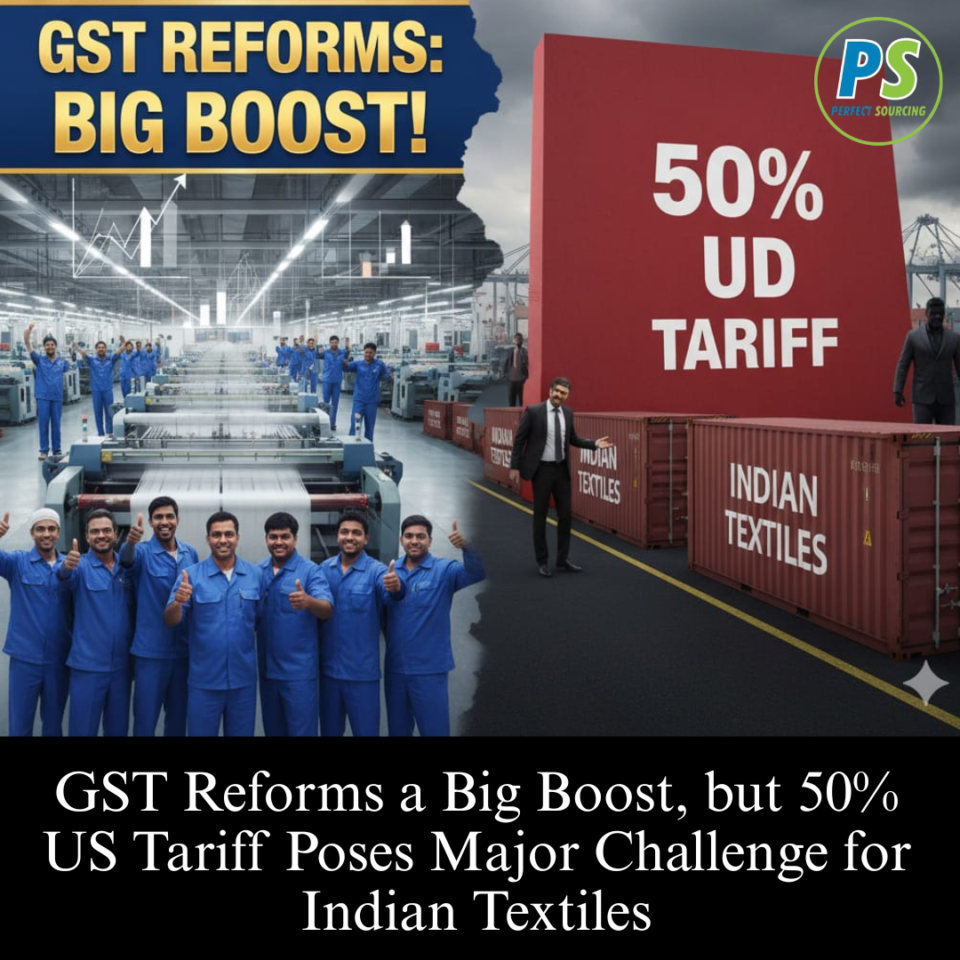India’s pivotal textile and apparel sector is at a crossroads, balancing long-term gains from GST reforms with immediate risks from the newly imposed 50% US tariff on Indian goods.
Speaking at a webinar on “GST 2.0 & US Tariff and Their Twin Impact on the Indian Textile and Apparel Sector”, jointly organized by the Confederation of Indian Textile Industry (CITI) and EY India on September 26, EY India Partner – Indirect Tax & Incentives, Prashant Raizada, outlined both opportunities and challenges ahead.
Raizada noted that GST changes announced on September 3 have provided significant relief by:
- Eliminating duty inversion to ease cash flow and working capital,
- Ensuring fibre neutrality with a uniform GST rate for cotton and man-made fibres,
- Simplifying registration and compliance for small businesses, and
- Expanding the 5% GST slab to textile and apparel items priced up to ₹2,500.
“These reforms will increase consumer spending and benefit textile and apparel companies in the medium to long term,” Raizada said. He, however, cautioned companies to manage delayed utilization of Input Tax Credits (ITCs), review past purchase orders, and ensure dealers pass on benefits to consumers.
On the external front, the US—India’s single largest textile and apparel export market—has imposed a 50% tariff effective August 27. The US accounts for 28% of India’s textile and apparel exports, valued at nearly $11 billion in FY 2024-25.
“This tariff will make Indian exporters uncompetitive in the US market,” warned CITI Chairman Ashwin Chandran, calling the move a “grave challenge” that could force companies to rethink global strategies.
Raizada expressed hope for a resolution but urged Indian players to explore alternatives, including shifting part of their production bases and pursuing joint ventures to diversify risks.
For now, while GST reforms mark a structural positive for the industry, the tariff shock underscores the need for adaptability as India’s textile and apparel sector navigates global headwinds.

